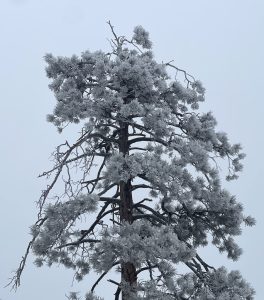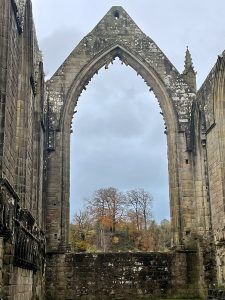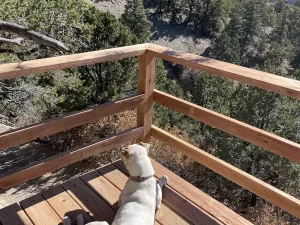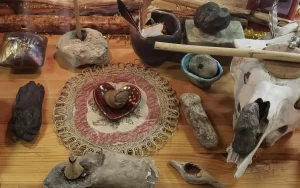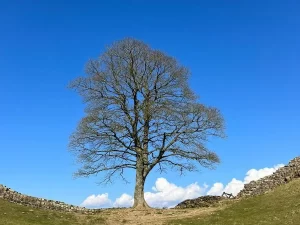by Florian Birkmayer MD
Jung resurrected the term ‘Enantiodromia‘ from Heraclitus to refer to the hidden patterns by which the psyche evolves. Enantiodromia literally means things turning into their opposite. While Heraclitus felt that this applied to the universe at large, Jung felt it applied to the unconscious. Since the collective unconscious to me (and Jung) emcompasses material reality, I think they were referring to the same thing.
In our human experience, we have all encountered enantiodromia. When we’re young and develop a big crush on someone, which is really projection, it can happen that this positive feeling can flip to its opposite and a crush on someone may turn into dislike or hate.
While enantiodromia is the natural process of the unconscious psyche, we can either be unconsciously ruled by it, or we can try to become conscious of it.
We see enantiodromia in the relationship between the alchemical stages, several of which are in seemingly opposing relationship to each other. The most classic example are the stages solutio (the dissolving stage) and coagulatio (the coagulating stage). The centrality of this enantiodromic process is summarized in the famous alchemical mantra ‘solve et coagula’ (‘dissolve and coagulate’). Keep in mind that this process doesn’t happen in a chemical beaker, but inside our psyche. These stages of psychic transformation are ‘opposites’ of each other and in the journey of our psyche we often cycle back and forth between these two stages. We can go from the dreamy, passionate, emotion-flooding state of solutio to the cold, hard reality of the ‘suchness of things’ (coagulatio) many times.
We see enantiodromia in the microcosms of our psyche and the macrocosm of the world. In traditional Chinese philosophy, this is represented by the Yin/Yang symbol, which doesn’t just describe opposites, such as masculine and feminine, wu-wei (which is sometimes translated as ‘doing something vs doing nothing’), etc., but also the fact that they are constantly turning into each other. The swooping around each other forms of yin and yang represent this cycle and that the ‘eye’ of yin is the color of yang (and vice versa) and represent the seed of the opposite in each other.
In history we have seen this again and again and this is what the German philosopher of history Georg Wilhelm Friedrich Hegel referred to as the cycle of thesis, antithesis and synthesis in a process he called the dialectic. From the superstitious, narrow minded ‘dark ages’ of the middle ages, through the alchemical transformative process of the black death, the renaissance was born and led to an explosion in interest in observation, inquiry, history, antiquity. It was the birth of the ‘enlightenment’ and humanism, and I (and others feel) we are now living at the end of the period of humanism and enlightenment, with the rise of consumerism, capitalism, the destruction of the environment. Aspects of this historical transformation, i.e. the end of the enlightenment through the rise of consumerism and mass media (and I would include social media although they didn’t exist at the time) were predicted by Max Horkheimer and Theodor Adorno in “Dialectic of Enlightenment” (published in 1944). At the risk of oversimplification, you could see the same process of things turning into their apparent opposite in the shift from the Obama administration in the US, which appeared ‘post-racial’ flipping into the Trump administration and their unwillingness to disavow racist terrorist groups (Orwellian-ly ‘mis’-labeled as ‘militias’). I say ‘appeared’ because one thing we learn through looking at events through the lens of enantiodromia is that all the elements are there or have been there ‘all along’, but enantiodromia causes a shift in what is valued and what is not seen, a foreground figure background figure shift, like the two profiles that are also a vase or the Necker cube’s apparent orientation.
You could see the same in the US views of the Taliban, which during the Reagan years were valued proxy fighters (and Reagan famously said ‘One man’s terrorist is another man’s freedom fighter.’) and subsequently, after 9/11 became terrorist enemy number one. There are countless examples throughout history.
In an article entitled ““America’s Moment of Reckoning”: Cornel West Says Nationwide Uprising Is Sign of “Empire Imploding” ((https://www.democracynow.org/2020/6/1/cornel_west_us_moment_of_reckoning), Cornell West talks about reckoning multiple dimensions of this period of a dramatic shift. I want to quote at length Cornell West, because he gives a much more cogent, detailed example of the process of enantiodromia, although he doesn’t use the term, which requires a fundamental shift in perspective between multiple dimensions. Whether you agree with his perspective or not, it does demonstrate this shift in perspective.
‘Well, there’s no doubt that this is America’s moment of reckoning. But we want to make the connection between the local and the global, because, you see, when you sow the seeds of greed — domestically, inequality; globally, imperial tentacles, 800 military units abroad, violence and AFRICOM in Africa, supporting various regimes, dictatorial ones in Asia and so forth — there is a connection between the seeds that you sow of violence externally and internally. Same is true in terms of the seed of hatred, of white supremacy, hating Black people, anti-Blackness hatred having its own dynamic within the context of a predatory capitalist civilization obsessed with money, money, money, domination of workers, marginalization of those who don’t fit — gay brothers, lesbian sisters, trans and so forth. So, it’s precisely this convergence that my dear sister Professor Taylor is talking about of the ways in which the American Empire, imploding, its foundations being shaken, with uprisings from below.
The catalyst was certainly Brother George Floyd’s public lynching, but the failures of the predatory capitalist economy to provide the satisfaction of the basic needs of food and healthcare and quality education, jobs with a decent wage, at the same time the collapse of your political class, the collapse of your professional class. Their legitimacy has been radically called into question, and that’s multiracial. It’s the neofascist dimension in Trump. It’s the neoliberal dimension in Biden and Obama and the Clintons and so forth. And it includes much of the media. It includes many of the professors in universities. The young people are saying, “You all have been hypocritical. You haven’t been concerned about our suffering, our misery. And we no longer believe in your legitimacy.” And it spills over into violent explosion.’
Where he says ‘connection between global and local’ I would add ‘and intrapsychic’. The hate projected outward is the shadow projection of the US dominant culture’s own fear/hate for African-Americans, while maintaining the pretense that the US is a civilized country where ‘all men are created equal.’ The uprising from below is from unconscious, not just collective, but individual.
This is the tension that is the inherent feature of the alchemical stage Separatio. We have known about these structural problems, but we have been lulled into being unconscious about them. The ‘rational mind’ knows no way forward, nothing in the current system works anymore. Before it was the dominant model and now it’s devouring itself.
So how do we deal or at least learn to live with these powerful forces that are beyond control of the ego? The only way to reconcile opposites in outside world is do it first within us. We have to tolerate all of ourselves, confront our Shadow instead of pretending we don’t have one.
By embracing our Shadow, and the collective unconscious, we are forced to realize that we, or more precisely our ego, is an integral part of a much larger system, Nature. Our core trauma is that we have forgotten this. How our wound, i.e. our unconscious rigid belief system and world view, manifests is an unmediated, direct expression of our level of dissociation from our wholeness, which manifests as neurosis.
Here’s enantiodromia again. We turn how we look at our view, of the ego, the ‘I’, the ‘me, me, me’ as the autonomous, most important thing in the world upside down and inside out. When we see Nature as alive and conscious and us an integral part of it, we can no longer continue to destroy the environment, because it means we are destroying ourselves. At the root of environmental concern and activism is this inner psychic process.
“The true reason for a neurosis always lies in the present, since the neurosis exists in the present. It is definitely not a hangover from the past, a caput mortuum [an alchemical term meaning a residue left over after the distillation of a substance]; it is fed and as it were new-made every day. And it is only in the today, not in our yesterdays, that the neurosis can be ‘cured.‘” What Jung is pointing at with reference to the genesis and cure of our wound or our neurosis is that it is something we are actually feeding, supporting and creating each moment based on the story we tell ourselves.” (Paul Levy (https://www.awakeninthedream.com/articles/the-wounded-healer-part-2)
That’s how the alchemical stage separatio, during which the deepest enantiodromia occurs, moves us forward. It fundamentally changes the story of our wound. The Default Mode Network in our brain, which tells us the false (or incomplete) yet rigid story of ourselves, needs to be disrupted through aromatic allies, psychedelics to do Shadow work. That change in perspective is what Cathy calls the ‘triumphant ending’ in healing ancestral trauma. We come home to ourselves. We worked with a client recently who had tried many psychiatric medications over the past 10 years and as it turns out the ‘symptoms’ he was trying to eliminate with medications were actually his true self, his unique gift, his personal myth, a certain buddha nature—The gift of the wound. In fact, every client we work with benefits from this deep shift in perspective. Our symptoms, our traumas, become our unique gift and enliven and charge our personal myth. Paul Levy again: “When the wound comes up, instead of interpreting it solely as an expression that we really are wounded, we can recognize the wound’s momentary appearance as the unfolding, releasing, dissolution and dis-illusion of the very same wound that we had previously imagined to substantially exist.” Paul Levy (ibid)
I suppose we can say that enantiodromia happens, no matter what. It can happen either unconsciously, as we all have experienced within and around ourselves, or we can embrace the process, do the shadow work and embrace the new perspective, in all its ego-challenging and ego-destroying and ego-transforming deep beauty and power.
Paul Levy again: “We are all creative geniuses who are divinely empowered to call forth and literally co-create this universe with itself and each other. To the extent we are not consciously aware of our power, however, we unconsciously dream up this universe in a way that not only doesn’t serve us, but rather, is destroying us. Our God-given power to creatively call forth reality is boomeranging and we are unwittingly using it against ourselves, as if we have become enchanted and have fallen under a spell. We snap out of our bewitchment when we consciously realize and start actively using the power of our divine creative imagination to transform our experience of the world.” (Paul Levy, ibid.)
At the end of his most famous work “Candide”, the French writer Voltaire, who like the protagonist of that novel, lived through challenging times of endless wars in Europe in the 18th century, states that the most important thing in life that remains is that ‘we must cultivate our garden.’ This can be interpreted as a withdrawal into a private realm, trying to avoid the conflict all around, but to me it has several other meanings. Cultivating a garden isn’t something the ego can force or dictate, but rather a relationship to something we can’t control, such as Nature and the unconscious, yet at the same time we have to make a persistent effort. The fruits of our labors are deeply rewarding, like living our personal myth. Above all, cultivating a garden is about reconnecting with Nature and its rhythms and our place in it. Only in that way can we survive and thrive.
share this blog:
Recent Posts
Archives
- December 2023
- November 2023
- September 2022
- July 2022
- September 2021
- August 2021
- July 2021
- June 2021
- April 2021
- March 2021
- February 2021
- January 2021
- November 2020
- October 2020
- August 2020
- July 2020
- June 2020
- May 2020
- April 2020
- March 2020
- February 2020
- October 2019
- September 2019
- July 2019
- May 2019
- March 2019
- September 2018

